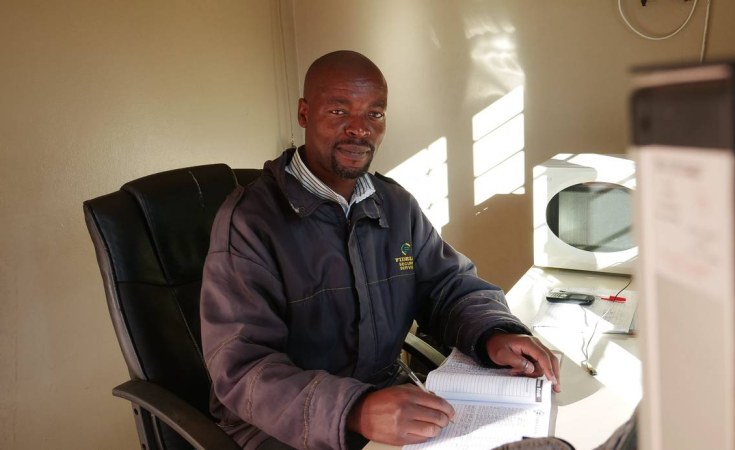Johannesburg — The inflation diaries: As price rises outstrip salaries, residents worry about sending money to families back home, and avoiding rising violence on the streets
South African security guard Obed Mukwebo runs to work every morning because it is good for both his health and his rapidly shrinking budget, as fuel and food prices continue to spike in Africa's most developed economy.
Like Mukwebo, millions of South Africans are anxiously counting their rands each month and making difficult decisions about what can be cut in an attempt to pay for rent, food, transport and school fees.
"Life is becoming really difficult," said Mukwebo, 42, as he monitored who enters and exits the gated residential complex in northern Johannesburg where he works.
"I am running more often to save on petrol and trying to share groceries with my housemates. We keep a look out for deals and sales on things like vegetable oil or meat that we can split," he said.
Living costs including groceries, transport and fuel are all rising sharply, largely fuelled by rising global energy and food costs triggered by the Ukraine war.
The cost of an average household food basket rose by more than 13% in the year to June, according to research by civil society initiative The Pietermaritzburg Economic Justice and Dignity Group (PMBEJD).
On top of this, South Africa is experiencing rolling electricity blackouts, adding to pressures on businesses and online entrepreneurs.
When Mukwebo is not at work, he and his six housemates often have to sit in darkness at their home in inner-city Johannesburg. He said the conversation often turns to money and what else they can do to cut costs.
"I won't be able to visit home as often," said Mukwebo, whose family live in the Limpopo province about 500 km (310 miles) northeast of Johannesburg.
REMITTANCES UNDER PRESSURE
Cikala Ladislas, a Congolese refugee and driver who has worked for Uber in Johannesburg for four years, said the rising cost of fuel means he is no longer able to send money back home to his family.
Despite a cut to fuel taxes earlier this year, drivers like Ladislas are having to make difficult decisions around paying remittances and children's school fees.
"I don't have other choices," he said.
For the country's poorest, it is an increasing struggle to even buy enough to eat.
Approximately 11% of South Africa's 60 million people are hungry and food insecure, according to The Borgen Project nonprofit.
Almost half of the population receives various social grants, but researchers have warned that government benefits are not keeping pace with inflation. The child support grant was 41% below the average cost of a basic nutritious diet for a child, according to the PMBEJD.
"It is really an untenable situation because people starve - and that's really where things are at in South Africa," said Gilad Isaacs, director of the Institute for Economic Justice (IEJ), a Johannesburg-based economic think-tank.
As Mukwebo returns home after work, he sees growing evidence of violent crime which he believes is spurred on by the desperate economic situation.
"Sometimes I get home and I see blood on the street and I know there has been another incident," said Mukwebo, adding that he and his neighbours try to walk in groups to avoid being targeted by thieves.
"(The) government really needs to step in to help because we are struggling already," he said.
($1 = 16.3326 rand)
(Reporting by Kim Harrisberg @KimHarrisberg; Editing by Sonia Elks. The Thomson Reuters Foundation is the charitable arm of Thomson Reuters, and covers the lives of people around the world who struggle to live freely or fairly. Visit http://news.trust.org)


